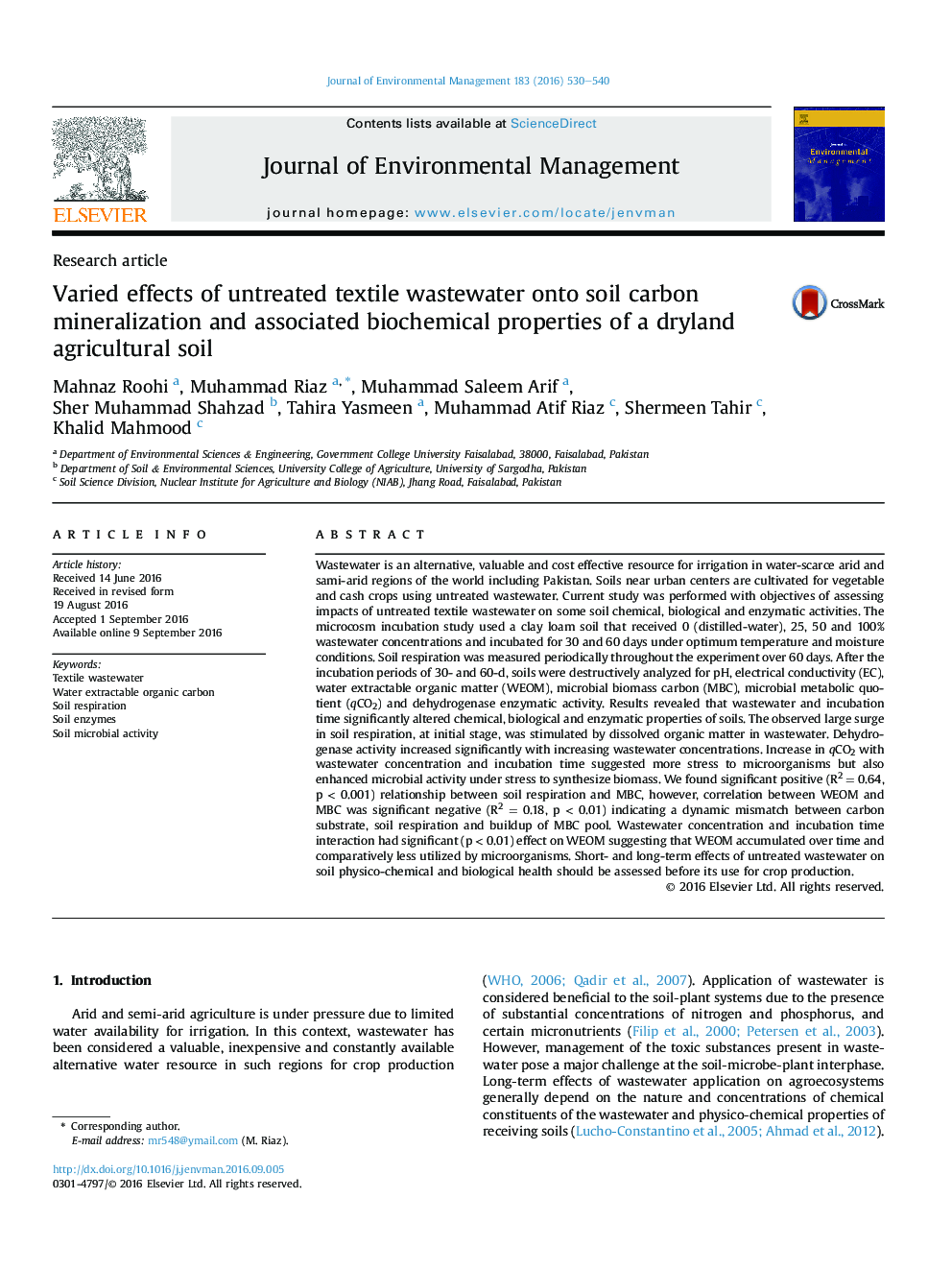| کد مقاله | کد نشریه | سال انتشار | مقاله انگلیسی | نسخه تمام متن |
|---|---|---|---|---|
| 5117188 | 1378118 | 2016 | 11 صفحه PDF | دانلود رایگان |
- Textile wastewater significantly altered microbial and enzymatic activities.
- Dehydrogenase activity increased with increasing C substrate in wastewater.
- qCO2 increased with wastewater concentration and over incubation time.
- Dynamic mismatch existed between C substrate and microbial activity.
Wastewater is an alternative, valuable and cost effective resource for irrigation in water-scarce arid and sami-arid regions of the world including Pakistan. Soils near urban centers are cultivated for vegetable and cash crops using untreated wastewater. Current study was performed with objectives of assessing impacts of untreated textile wastewater on some soil chemical, biological and enzymatic activities. The microcosm incubation study used a clay loam soil that received 0 (distilled-water), 25, 50 and 100% wastewater concentrations and incubated for 30 and 60 days under optimum temperature and moisture conditions. Soil respiration was measured periodically throughout the experiment over 60 days. After the incubation periods of 30- and 60-d, soils were destructively analyzed for pH, electrical conductivity (EC), water extractable organic matter (WEOM), microbial biomass carbon (MBC), microbial metabolic quotient (qCO2) and dehydrogenase enzymatic activity. Results revealed that wastewater and incubation time significantly altered chemical, biological and enzymatic properties of soils. The observed large surge in soil respiration, at initial stage, was stimulated by dissolved organic matter in wastewater. Dehydrogenase activity increased significantly with increasing wastewater concentrations. Increase in qCO2 with wastewater concentration and incubation time suggested more stress to microorganisms but also enhanced microbial activity under stress to synthesize biomass. We found significant positive (R2 = 0.64, p < 0.001) relationship between soil respiration and MBC, however, correlation between WEOM and MBC was significant negative (R2 = 0.18, p < 0.01) indicating a dynamic mismatch between carbon substrate, soil respiration and buildup of MBC pool. Wastewater concentration and incubation time interaction had significant (p < 0.01) effect on WEOM suggesting that WEOM accumulated over time and comparatively less utilized by microorganisms. Short- and long-term effects of untreated wastewater on soil physico-chemical and biological health should be assessed before its use for crop production.
Journal: Journal of Environmental Management - Volume 183, Part 3, 1 December 2016, Pages 530-540
